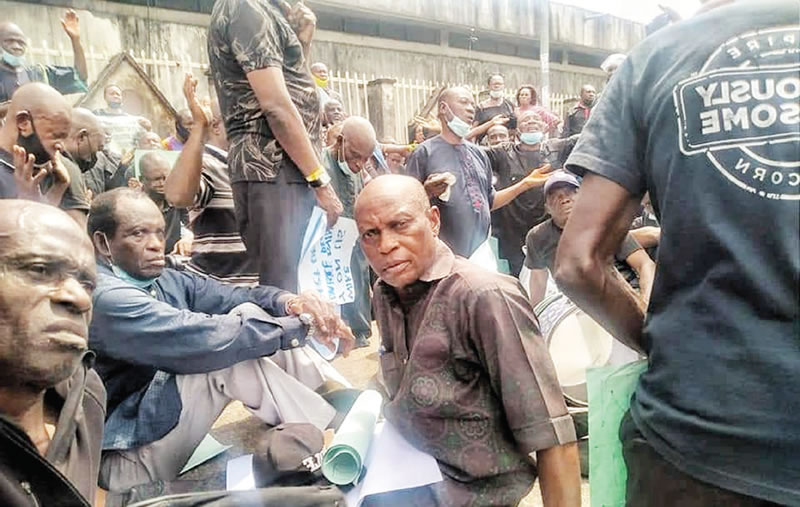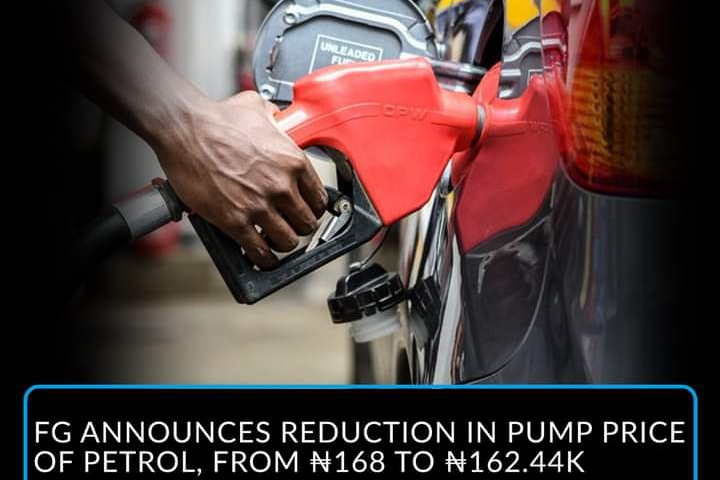As the night falls near Ghana’s northern town of Tamale, Rakiya Mumuni must scramble to find a candle. Once the single light is flickering in her small kitchen, Rakiya can begin cooking.
“Sometimes we use our phones but because we were not aware, now my phone is off and I have to depend on this candle here,” she told DW.
There’s been an electricity outage in Rakiya’s Gumani neighborhood since the morning, so she hasn’t been able to charge her cell phone.
Ghanaian neighborhoods like Rakiya’s have been experiencing prolonged electricity outages in the last few weeks.
It’s part of a nationwide power crisis that affects not only residential consumers like Rakiya but also businesses — big and small.
By the roadside in Tamale, the power outage has left many welders idle. Alhassan Abdul Rahaman has lost many welding jobs due to the power crisis.
“One military man came last Friday for us to make a window for him. We gave him time to come back for it,” Rahaman told DW. “But due to the ‘dumsor dumsor’ we couldn’t deliver it and the man was about to attack us.”
‘Dumsor dumsor’ — a phrase in Ghana’s Akan language that translates to ‘power cut’ — has become shorthand for describing Ghana’s electricity woes, in the same way people in South Africa refer to ‘loadshedding.’
What’s causing the power outages?
The local electricity regulator blames the power cuts on overloaded transformers. But experts say it is partly due to the country’s inability to pay private electricity suppliers, who provide the bulk of Ghana’s electricity.
Ghana’s state power company, the Electricity Company of Ghana (ECG), owes over $1.7 billion (€1.6 billion) to these suppliers.
The sum of unpaid bills has become so vast that power suppliers have often refused to continue supplying electricity.
This includes the Ghanaian parliament, which in March was plunged into darkness over a debt of $1.8 million, according to the ECG.
Salifu Mubarik, an economist at the University for Development Studies in Tamale, said it will take urgent and deliberate investment to get the country out of the situation.
“Looking at the current debt we have accumulated as a country pending the restructuring that is still ongoing, I doubt whether government can meet the demands of the independent power producers,” Mubarik told DW
“The best thing government will can do is to renegotiate with them.”
Return to power cuts
Ghana, a country that is rich in mineral resources, has been accused of crawling back to the period of 2012 to 2016 when it was in a serious power crisis.
The situation partially stabilized for nearly a decade — but it is beginning to worsen again.
Many blame bad governance. Despite the power woes, Ghana is not short of natural resources. It boasts three hydro-electric dams: Akosombo, Kpong and Bui.
It also has significant offshore oil and gas reserves, though these are yet to be fully exploited.
According to the International Energy Agency (IEA), 63% of Ghanaian electricity is generated though natural gas, with 34% coming from hydropower.
Despite this, a majority of Ghanaians do not have a steady supply of electricity, especially in rural areas.
‘Tragic consequences’
In 2021 the IEA reported the average Ghanaian consumes 0.572 megawatt-hours, compared 5.924 megawatt-hours of the average German.
Still, a majority of Ghanaians do not have a steady supply of electricity, especially in rural areas. Poor maintainence of existing electricity infrastructure, and Ghana’s current economic downturn have also been blamed for the blackouts.
The power cuts have also been blamed for individual tragedies.
Last week, Ghanaian media reported a 24-year-old mother saying her 3-day-old baby died at the Tema General Hospital due to the power outage.
While health officials later denied that the child’s death was the result of a power cut or hospital equipment not functioning, the story still shocked ordinary Ghanaians, like Irene Dery, who lives in Tamale.
“When I saw the video of the baby dying at the Tema hospital, I became so devastated and so depressed, and I asked myself — where is this country heading to?” she told DW.
Increased demand for power
According to Ghana’s Energy Commission,electricity consumption in the residential sector has been steadily increasing at the rate of 4.3% annually in the last two decades, partly due to rapid urbanization and population growth.
Northern Ghana in particular is experiencing high heatwaves this year, and engineer Issahaku Mubarik, an energy expert at the University for Development Studies, said ordinary people have been investing in ways to mitigate the hot temperatures — often in ways that require even more electricity.
“This has made a lot of people to go in for air conditioners, and with more air conditioners it means that our electricity usage will spike up,” Mubarik told DW.
“Infrastructure planning should have projected and made adequate provision to take care of but they’ve not been able to make that provision.”
Meanwhile, back in Gumani, Rakiya Mumuni’s refrigerator could barely keep her perishable food fresh due to the unstable power supply and low voltage. She’s had to dispose of the rotting food — a waste.
Rakiya and others want the electricity company to roll out a power cut schedule for Ghanaians to plan their lives — like in the old days.
“Some years back we had this dumsor, and then they told us the time — maybe 6 to 6 and we could prepare and know what to do,” she told DW.
“But now it’s not like that. They can just take the light when they like, it just goes off anytime you are not aware, you are not prepared.”
This article has been adapted by Cai Nebe from a radio report that was broadcast on DW’s daily podcast AfricaLink









